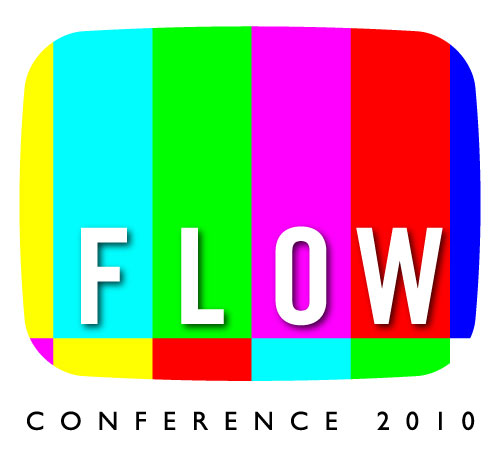Report From: Flow 2010
 Was Flow 2010 a success? Well, I left Austin yesterday morning thinking about the friends I was able to reconnect with, the friends I was able to make, and the wonderful position papers and discussions that were part of the roundtables. Not only that, but I was full of renewed energy for my own research–so I’m going to go with a resounding “yes”. I also left thinking about the way I’d like to discuss the conference with my students this week. These students are all new to media studies, and I think it would be both edifying and fascinating for them to see that the concepts we cover in class are the same concepts more advanced scholars consider in their own work. “Remember when we discussed genre a couple of weeks ago?” I imagine myself saying. “Well, I was at a panel on Saturday about science fiction–its generic qualities, the way those qualities are shifting, and the various industrial utilities of the genre.” I think they’ll thumb through the program with interest and perhaps see themselves as part of a larger conversation, much in the way all of us in attendance at Flow were able to contribute our own voices to ongoing conversations.
Was Flow 2010 a success? Well, I left Austin yesterday morning thinking about the friends I was able to reconnect with, the friends I was able to make, and the wonderful position papers and discussions that were part of the roundtables. Not only that, but I was full of renewed energy for my own research–so I’m going to go with a resounding “yes”. I also left thinking about the way I’d like to discuss the conference with my students this week. These students are all new to media studies, and I think it would be both edifying and fascinating for them to see that the concepts we cover in class are the same concepts more advanced scholars consider in their own work. “Remember when we discussed genre a couple of weeks ago?” I imagine myself saying. “Well, I was at a panel on Saturday about science fiction–its generic qualities, the way those qualities are shifting, and the various industrial utilities of the genre.” I think they’ll thumb through the program with interest and perhaps see themselves as part of a larger conversation, much in the way all of us in attendance at Flow were able to contribute our own voices to ongoing conversations.
I was able to attend five sessions over the course of three days, and they were all engaging and thought-provoking. I could tell you what was discussed at each of those roundtables, but I truly think that there’s something about Flow that’s more valuable than the material productivity of each session, and that’s what I’d like to discuss in this wrap-up. Flow is not about finding answers, it’s about facilitating dialogue, and what struck me, in particular, was the way that all of the roundtables (including, from my perspective, those I was unable to attend) seemed to be in conversation with one another. In each roundtable, either a contributor or audience member (and usually both, many times over) would invoke an idea from another session. The Twitter feed for the conference (#flow10, if you’re interested) was full of conversations happening in backchannels that allowed for a wonderful flow (*rimshot*) between roundtables. And perhaps this is the greatest strength of the Flow conference model: the ability to facilitate dialogue not only within panels, but among them. With a relatively small (compared to a conference like SCMS) number of attendees and roundtables, it’s possible to have a sense of what’s going on throughout the entire conference–not just the sessions you attend. And so you hear audiences comment that the “Left Behind” roundtable’s discussion of the issues plaguing video stores actually comes to bear on the “State of American Network Television” roundtable’s discussion of the value of localism. Flow endeavors to do something different from the usual conference model, and the result is something particularly community-building. I enjoyed the experience in 2008, I enjoyed it over the last few days, and I look forward to reuniting in Austin for Flow 2012.



Flow is probably my favorite conference simply because the format allows for a real discussion. I do wish that the topics were less TV oriented and even more abstract at times. My main reason for that is that we are involved in these brackish waters of digital/analogue where media change is everyday yet not quite accomplished. Focus and clarity should come from the researcher and not so much what we assume our units of analysis are, for those are changing. Flow is the only space I know of that has moments where this intermingling occurs.